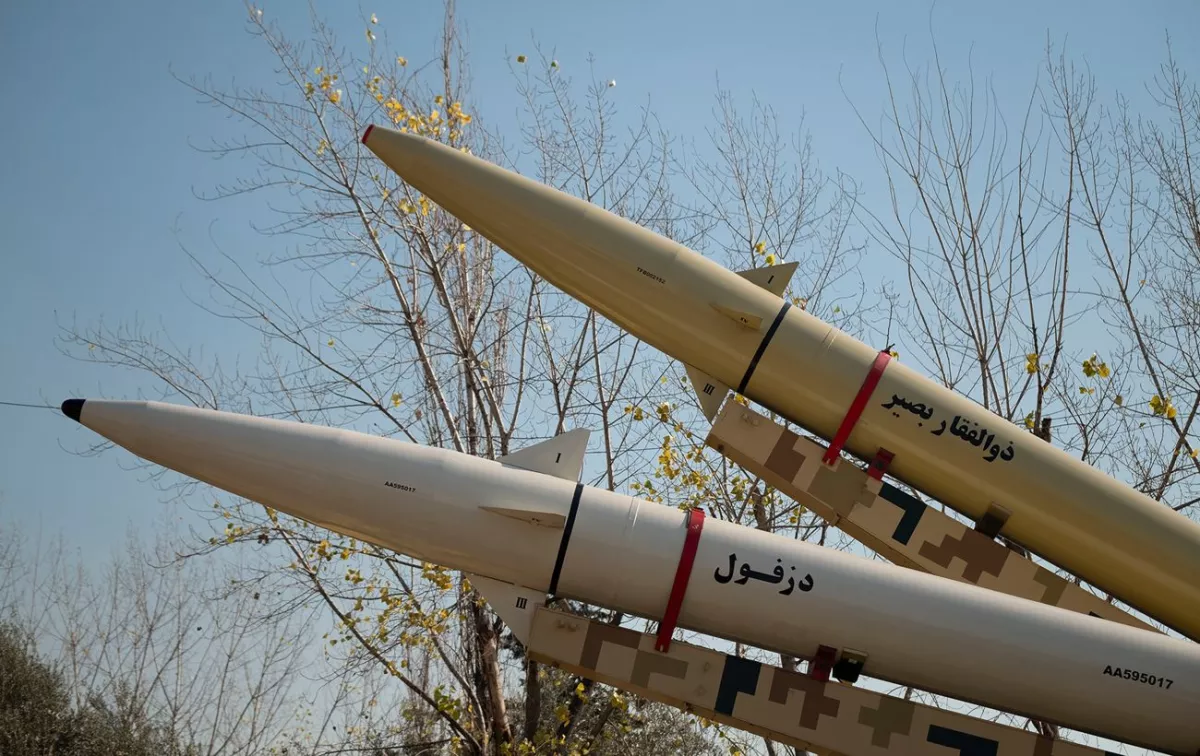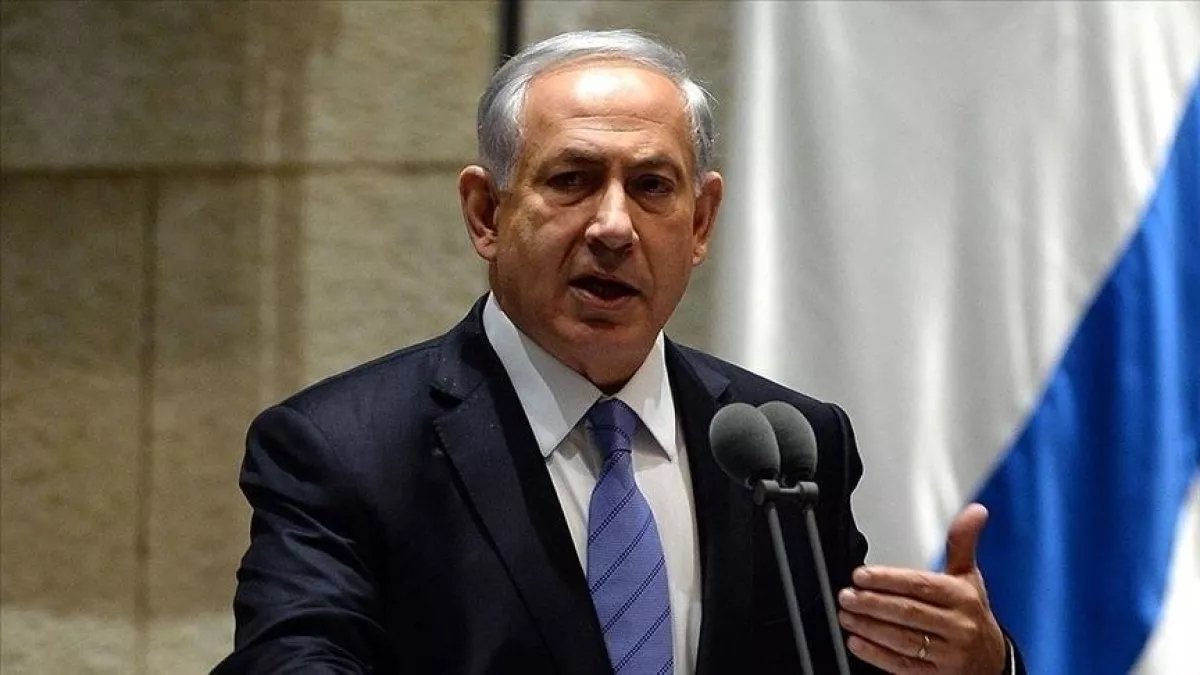Iran – Israel: When rhetoric outweighs action Middle East on Edge
On the Iran-Israel front, current developments paint a striking picture. Reports indicate that on October 1 at 19:30, Iran launched its most extensive missile attack on Israel since the latter's establishment in 1948, firing 181 ballistic missiles. The Islamic Revolutionary Guard Corps (IRGC) claimed the assault was a "response to the assassination of Hassan Nasrallah and Ismail Haniyeh."
Initial reports suggest that Israeli air defence systems intercepted most of the missiles, but impacts were recorded in various regions across the country. The most significant strike targeted Dimona, home to Israel's nuclear research centre. Additionally, missiles reportedly struck two air bases. Several media outlets have cited IRGC's claims of successfully hitting "90% of the targeted missiles," including air bases, radar stations, and security agencies involved in planning the assassinations of high-ranking members of Hamas and Hezbollah.
According to preliminary reports, as a result of a direct missile strike on a building in Tel Aviv, three people sustained minor shrapnel injuries. In the Jericho area of the West Bank, a worker from the Gaza Strip was killed due to falling missile debris.
Some of the Iranian missiles were intercepted by the US Air Force over Jordan. British forces have also been reported to have participated in countering the missile attack. Israeli sources indicate that an emergency meeting of Israel's security cabinet was held at the National Crisis Center (NCC), an underground complex (bunker) designed for the country's top leadership in the event of an attack. This facility is intended to protect against nuclear, chemical, biological, and cyber threats, as well as conventional attacks.
At 20:30, the Israeli Home Front Command allowed residents to leave shelters, and soon after, the airport authority announced the resumption of flights and the reopening of Israeli airspace to commercial aviation. Lebanon also announced the reopening of its airspace around the same time.
Iran's Permanent Representative to the UN, Iraj Masjedi, characterized Tehran's recent attack as a "lawful, rational, and legitimate response to the terrorist actions of the Zionist regime, which include assaults on civilians and our national sovereignty, executed as a matter of right." Other reports from Tehran indicate that "unlike Israel, which consistently views innocent civilians and civilian infrastructure as legitimate targets for attacks, Iran has only conducted defensive missile strikes against military targets."
The General Staff of the Armed Forces denied widespread claims that Iran intends to "unleash war," affirming its "full determination to defend its right to self-defence." Additionally, there were reports of a warning issued by Iran to Israel, stating that "in the event of a new attack on Iran, Israeli critical infrastructure will be destroyed." Iranian Defense Minister Brigadier General Aziz Nasirzadeh also noted that Iran has not yet "deployed high-tech and lethal missiles."

In turn, the Israel Defense Forces (IDF) spokesperson announced that "the operational readiness of the Air Force remains at the same level”, and Israel would carry out a powerful attack in the Middle East soon. Israeli Foreign Minister Israel Katz described the missile attack as "crossing a red line by Iran, and Israel does not intend to remain silent."
Following this, IDF Chief of Staff Herzi Halevi stated that Israel would "demonstrate its ability to prevent the enemy from achieving its objectives" through "a combination of an excellent civil defence system and strong air defence capabilities." In this context, Halevi remarked on "Israel's choice of timing for when the enemy will pay the price." Israel's Permanent Representative to the UN, Danny Danon, added that "Israel is prepared for both defence and offence, and any aggressors against the country should expect a painful response."
The Pentagon condemned Iran's attack as "unjustified" and affirmed Israel's right to respond to the assault. It also referenced US President Joe Biden's remarks regarding the "ineffectiveness of the missile strike." In light of these developments, many experts suggest the possibility of joint involvement of US and Israeli forces in a response against Iran. This speculation stems from a statement made two days ago by a high-ranking source in the White House, emphasizing active support for Israel's defence and warning that a direct military attack on this country would lead to very severe consequences for Iran. Concurrently, Washington announced the deployment of three combat squadrons to the region.
Shortly before the Iranian attack, US presidential candidate Donald Trump claimed that if he wins the election, he could "end the chaos in the Middle East without triggering a Third World War. No one else can say that." Meanwhile, Republican vice-presidential candidate J.D. Vance blamed "Kamala Harris's actions" for the crisis in the Middle East.
UN Secretary-General António Guterres, without specifying the recipients of his social media post, condemned the "broadening of the Middle East conflict, with escalation after escalation," emphasizing the urgent need for a ceasefire. Notably, the UN peacekeeping force (UNIFIL) announced that any crossing of the Lebanese border from the Israeli side would be considered a violation of Lebanon's sovereignty and UN Security Council Resolution 1701.
Due to ongoing disagreements among European Union leaders, plans for a joint statement regarding the incident remained unfulfilled. Specifically, the prepared text was blocked by the Czech Republic, leading to a statement from Josep Borrell, in which he called on behalf of the EU for an "immediate ceasefire between Hezbollah and Israel," reaffirming the guarantees for preserving the sovereignty of both Israel and Lebanon.
What to Expect
It is clear that politicians and analysts of all kinds are tirelessly discussing potential developments. Many experts believe that Israeli authorities, likely under U.S. leadership, intend to form an anti-Iran coalition in the near future to conduct a large-scale attack on Iran, rather than acting "alone." This assertion is supported by remarks from Israeli Prime Minister Benjamin Netanyahu during his address at the 79th session of the UN General Assembly, where he contrasted "Iranian aggression" with the historic reconciliation between Arabs and Jews. He spoke of a collaborative effort between "Israel and its Arab partners forming a land bridge connecting Asia and Europe,” benefiting 2 billion people.

However, according to Netanyahu, "an arc of terror that Iran has created and imposed from the Indian Ocean to the Mediterranean. Iran’s malignant arc has shut down international waterways." He warned that "Iran’s aggression, if it’s not checked, will endanger every single country in the Middle East, and many, many countries in the rest of the world."
In this context, the Israeli Prime Minister referred to "one of the best ways to foil Iran’s nefarious designs is to achieve the peace. Such a peace would be the foundation for an even broader Abrahamic alliance, and that alliance would include the United States, Israel’s current Arab peace partners, Saudi Arabia, and others." By promoting such peace as a means to "advance security and prosperity across the Middle East and bring enormous benefits to the rest of the world," Netanyahu expressed his belief that "with American support and leadership, I believe this vision can materialize much sooner than people think."
In a similar vein, Israeli Foreign Minister Katz emphasized the importance of support from the entire free world for Israel to stop the Iranian “axis of evil” while there is still time. Alongside this, analysts have noted the expression of solidarity with Israel from British Prime Minister Keir Starmer, who stated, "We stand with Israel, and recognise her right to self-defence in the face of this aggression." In this context, it has been reported that President Biden plans to discuss "the necessary response" with Netanyahu.
Thus, as most observers believe, the parties are currently primarily engaging in belligerent rhetoric. Naturally, options for "mutual responses" are being explored. Against this backdrop, the world awaits the scheduled UN Security Council meeting to discuss the evolving situation in the Middle East. Ahead of the meeting, Tehran called on Security Council members to "take urgent and effective measures to prevent further threats from the Israeli regime to regional and international peace and security." Concurrently, Iran's UN ambassador, Iravani, stated in a letter to the Security Council president and the UN Secretary-General that the country is "fully prepared, if necessary, to take further defensive measures to protect its territorial integrity and sovereignty against any manifestations of armed aggression and unlawful use of force."
We await further developments.








